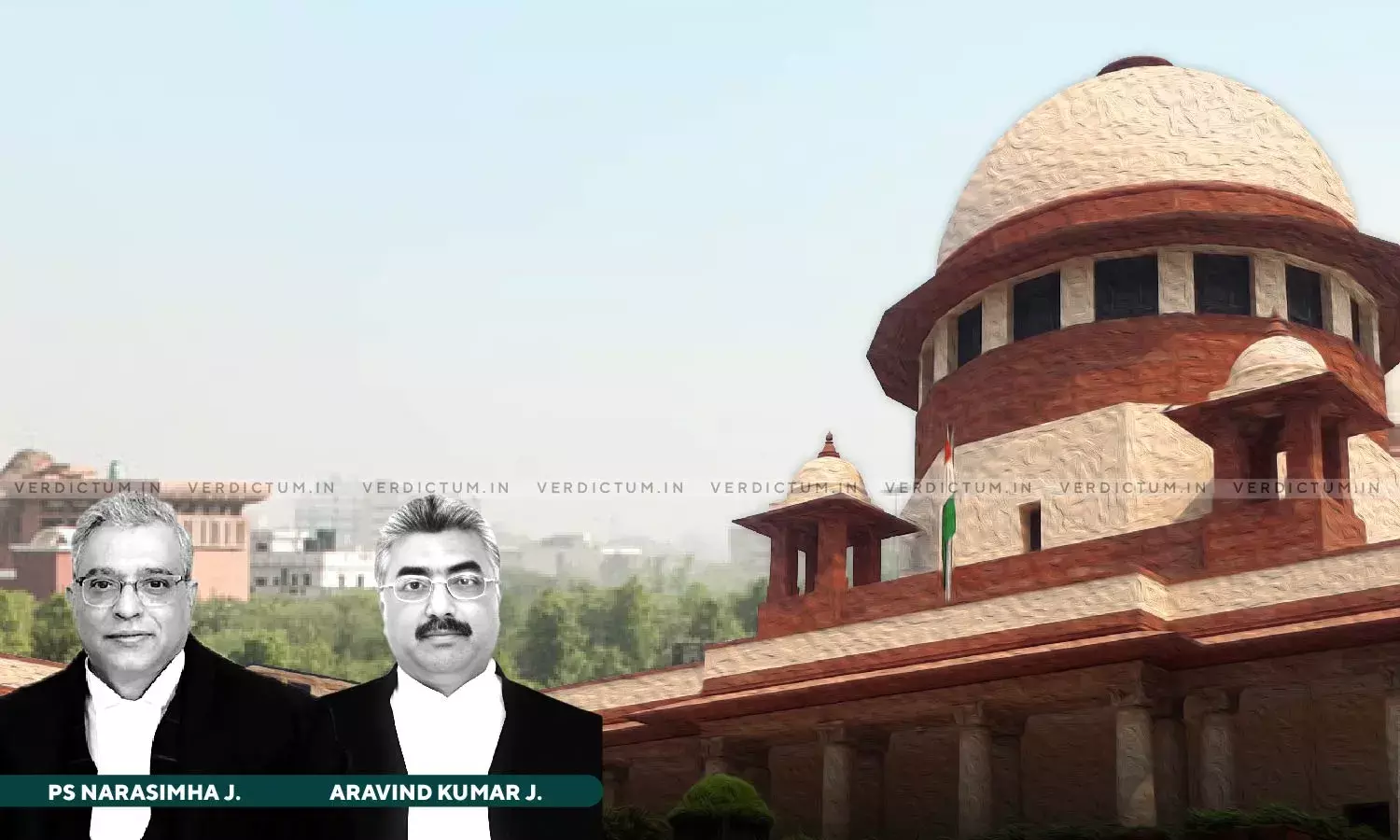Writ Petition Should Be Dismissed If It Is Found That Petitioner Is Guilty Of Delay & Latches: Supreme Court

The Supreme Court held that the delay or latches is one of the factors which should be borne in mind by the High Court while exercising discretionary powers under Article 226 of the Constitution.
The Court held thus in an appeal preferred against the judgment of the High Court by which it entertained a writ petition challenging the approval granted in favour of a person for starting LPG distributorship at Jamalpur, District Burdwan.
The two-Judge Bench of Justice P.S. Narasimha and Justice Aravind Kumar observed, “Having heard rival contentions raised and on perusal of the facts obtained in the present case, we are of the considered view that writ petitioner ought to have been non-suited or in other words writ petition ought to have been dismissed on the ground of delay and latches itself. An applicant who approaches the court belatedly or in other words sleeps over his rights for a considerable period of time, wakes up from his deep slumber ought not to be granted the extraordinary relief by the writ courts. This Court time and again has held that delay defeats equity. Delay or latches is one of the factors which should be born in mind by the High Court while exercising discretionary powers under Article 226 of the Constitution of India.”
Senior Advocate Pijush K. Roy appeared for the appellant while Senior Advocate Shekhar Naphade and Advocate Zoheb Hossain appeared for the respondents.
In this case, an advertisement was issued in 2012 calling for application for distributors to grant LPG distributorship under GP Category at Jamalpur, District Burdwan. From amongst the applications so received, the application submitted by the appellant as well as one of the respondents were found to be in order. Since both the appellant and respondent were held to be eligible from amongst the six candidates, draw of lots was held in 2013 and appellant was found successful candidate and was selected for verification of the documents.
A letter of intent was issued to the appellant and the approval was granted by the BPCL in favour of the appellant for starting LPG distributorship at the notified place. After a lapse of 4 years, the respondent filed a complaint with the BPCL alleging that land offered by the appellant was a Barga land and the same cannot be considered. Subsequently, application having been filed by the appellant offering an alternate land, the Corporation allowed the prayer of the appellant to construct the godown and showroom on the alternate land offered by the appellant.
The Supreme Court in view of the above facts noted, “In a given case, the High Court may refuse to invoke its extraordinary powers if laxity on the part of the applicant to assert his right has allowed the cause of action to drift away and attempts are made subsequently to rekindle the lapsed cause of action.”
The Court said that the discretion to be exercised would be with care and caution and if the delay which has occasioned in approaching the writ court is explained which would appeal to the conscience of the court, in such circumstances it cannot be gainsaid by the contesting party that for all times to come the delay is not to be condoned.
“There may be myriad circumstances which gives rise to the invoking of the extraordinary jurisdiction and it all depends on facts and circumstances of each case, same cannot be described in a straight jacket formula with mathematical precision. The ultimate discretion to be exercised by the writ court depends upon the facts that it has to travel or the terrain in which the facts have travelled”, it observed.
The Court emphasised that when the extraordinary jurisdiction of the writ court is invoked, it has to be seen as to whether within a reasonable time same has been invoked and even submitting of memorials would not revive the dead cause of action or resurrect the cause of action which has had a natural death.
“In such circumstances on the ground of delay and latches alone, the appeal ought to be dismissed or the applicant ought to be non-suited. If it is found that the writ petitioner is guilty of delay and latches, the High Court ought to dismiss the petition on that sole ground itself, in as much as the writ courts are not to indulge in permitting such indolent litigant to take advantage of his own wrong. It is true that there cannot be any waiver of fundamental right but while exercising discretionary jurisdiction under Article 226, the High Court will have to necessarily take into consideration the delay and latches on the part of the applicant in approaching a writ court”, it added.
The Court referred to the judgment in the case of Karnataka Power Corportion Ltd. and another v. K. Thangappan and another, (2006) 4 SCC 322 whereunder it was held that the High Court may refuse to exercise extraordinary jurisdiction if there is negligence or omissions on the part of the applicant to assert his right.
“There being no stiff opposition or strong resistance to the alternate land offered by the appellant herein not being as per the specifications indicated in the advertisement, we see no reason to substitute the court’s view to that of the experts namely, the Corporation which has in its wisdom has exercised its discretion as is evident from the report filed in the form of affidavit by the territory manager (LPG)/ BPCL”, it concluded.
Accordingly, the Apex Court allowed the appeal and set aside the judgment of the Division Bench.
Cause Title- Mrinmoy Maity v. Chhanda Koley and Others (Neutral Citation: 2024 INSC 314)
Appearance:
Appellant: Senior Advocate Pijush K. Roy, Advocates Pritthish Roy, Kakali Roy, Asit Roy, and AOR Rajan K. Chourasia.
Respondents: Senior Advocate Shekhar Naphade, AORs Zoheb Hossain, Asha Gopalan Nair, Advocates Sandeep Narain, and Nivedita Nair.


